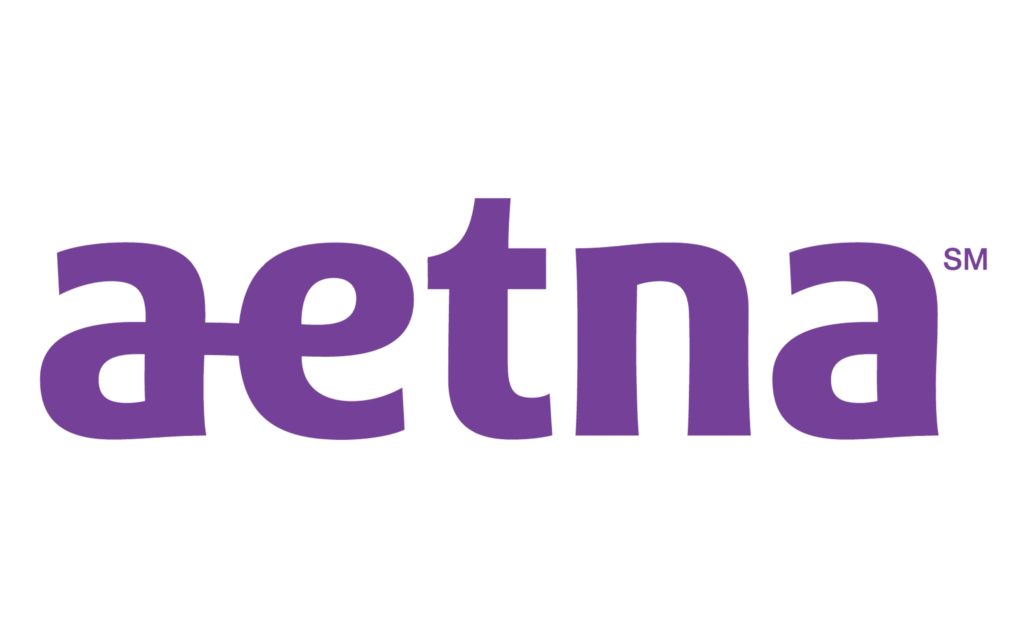Why Choose Carolina Recovery Solutions
When it comes to seeking addiction treatment services, Carolina Recovery Solutions in Asheville, NC stands out as a reputable option. Their outpatient drug treatment program offers numerous benefits, and the success rates of outpatient treatment programs have been proven to be high.
The Benefits of Outpatient Drug Treatment
Outpatient drug treatment programs offer several advantages that make them an appealing choice for individuals seeking recovery. One significant benefit is the flexibility provided by these programs. At Carolina Recovery Solutions, individuals can receive treatment while maintaining their daily responsibilities, such as work, school, or family obligations. This flexibility allows individuals to integrate treatment into their lives without significant disruptions.
Another notable advantage of outpatient drug treatment is its cost-effectiveness. Compared to inpatient treatment programs, outpatient programs typically have lower costs associated with them. This affordability makes outpatient treatment a more accessible option for individuals seeking addiction treatment services. Carolina Recovery Solutions understands the financial burdens often associated with addiction recovery and strives to provide quality treatment at an affordable price.
Success Rates of Outpatient Treatment Programs
Outpatient drug treatment programs, including the one offered at Carolina Recovery Solutions, have shown high success rates. Studies have indicated that individuals who participate in outpatient treatment are more likely to maintain sobriety and avoid relapse. The comprehensive approach of outpatient treatment, combined with ongoing support and therapy, contributes to these positive outcomes.
By choosing Carolina Recovery Solutions for outpatient drug treatment, individuals can benefit from a program that prioritizes their unique needs and goals. The dedicated team at Carolina Recovery Solutions understands the importance of personalized treatment plans and offers a range of therapeutic services to address the underlying causes of addiction. From individual counseling to group therapy and family therapy, a comprehensive treatment approach is available to support long-term recovery.
When considering options for addiction treatment, Carolina Recovery Solutions in Asheville, NC provides an outpatient drug treatment program that offers flexibility, affordability, and a high success rate. By choosing Carolina Recovery Solutions, individuals can take an empowering step towards lasting recovery and a brighter future.
Flexibility and Convenience
When considering drug treatment options, the flexibility and convenience offered by outpatient drug treatment can make it an appealing choice for individuals seeking addiction treatment. This section explores how outpatient treatment allows individuals to maintain their daily responsibilities and the cost-effectiveness of this treatment option.
Maintaining Daily Responsibilities
One of the key advantages of outpatient drug treatment is the ability to continue fulfilling daily responsibilities while receiving treatment. This flexibility allows individuals to maintain work commitments, attend school, and take care of family responsibilities without the need for a prolonged absence from daily life (The Recovery Village).
By attending outpatient treatment sessions during scheduled appointments, individuals can receive the necessary care and support while still managing their personal obligations. This aspect of outpatient treatment is particularly beneficial for those who cannot afford to put their lives on hold for an extended period.
Cost-Effectiveness of Outpatient Treatment
Cost is an important factor to consider when selecting a drug treatment program. Outpatient drug treatment is typically more cost-effective than inpatient treatment programs, making it a more affordable option for individuals seeking treatment for substance abuse. The lower costs associated with outpatient treatment can be attributed to factors such as reduced overhead expenses and fewer medical interventions compared to inpatient programs.
By choosing outpatient treatment, individuals can receive quality care while minimizing the financial burden. This affordability can make treatment more accessible to those who may have concerns about the cost of addiction treatment.
Considering the flexibility and cost-effectiveness of outpatient drug treatment, it becomes clear why it is a popular choice for individuals seeking addiction treatment. This treatment option allows individuals to receive the care they need while continuing to fulfill their daily responsibilities, promoting a smoother transition towards lasting recovery.
Comprehensive Treatment Approach
When it comes to outpatient drug treatment, Carolina Recovery Solutions in Asheville, NC offers a comprehensive approach to address addiction and support long-term recovery. The program incorporates various therapeutic services, including individual counseling and therapy, as well as group therapy and support systems.
Individual Counseling and Therapy
Individual counseling and therapy play a crucial role in outpatient drug treatment. These one-on-one sessions provide a safe and confidential space for individuals to explore the underlying causes and triggers of their addiction. The counselor or therapist works closely with the individual to develop personalized treatment plans and identify strategies for coping with cravings, managing stress, and preventing relapse.
During individual counseling, evidence-based approaches such as Cognitive-Behavioral Therapy (CBT) and Motivational Interviewing (MI) may be utilized. CBT helps individuals identify and change negative thought patterns and behaviors associated with substance abuse, while MI focuses on enhancing motivation and commitment to recovery. The 12-Step facilitation approach, based on the principles of fellowships like Alcoholics Anonymous, has also shown positive outcomes in decreasing substance use and maintaining abstinence for clients dependent on alcohol.
Group Therapy and Support Systems
Group therapy is another essential component of outpatient drug treatment at Carolina Recovery Solutions. Group sessions offer a supportive and non-judgmental environment where individuals can connect with peers who are going through similar challenges. These sessions provide opportunities for sharing experiences, gaining insights, and building a strong support system.
Group therapy sessions may be facilitated by trained therapists or counselors who guide discussions and encourage participation. Therapeutic approaches such as the Therapeutic Community Approach may be employed, fostering a sense of community and promoting personal growth within the group (NCBI). The group dynamic allows individuals to learn from each other, develop healthy coping skills, and receive encouragement and accountability throughout their recovery journey.
In addition to group therapy, support systems are crucial for long-term recovery. Carolina Recovery Solutions may provide access to support group meetings, such as 12-Step programs or other recovery support groups. These meetings offer ongoing support, encouragement, and a sense of belonging to individuals in recovery.
By combining individual counseling and therapy with group therapy and support systems, Carolina Recovery Solutions ensures a comprehensive treatment approach for individuals seeking outpatient drug treatment. This holistic approach addresses the physical, emotional, and psychological aspects of addiction, promotes personal growth, and supports individuals in achieving lasting sobriety.
Is Outpatient Drug Treatment Right for You?
When considering drug treatment options, it’s important to determine whether outpatient drug treatment is the right choice for you. Outpatient treatment programs offer several benefits, but they may not be suitable for everyone. In this section, we will explore the characteristics of suitable candidates for outpatient treatment and consider the factors to be taken into account for individuals with severe addiction or co-occurring disorders.
Suitable Candidates for Outpatient Treatment
Outpatient drug treatment is generally recommended for individuals with mild to moderate substance abuse issues who have a stable living environment and a supportive network. This form of treatment allows individuals to maintain their daily routines and responsibilities while receiving the necessary help and support.
One of the key advantages of outpatient treatment is its flexibility. It provides individuals with the opportunity to continue working or attending school, caring for their families, and participating in their communities while undergoing treatment. It offers the convenience of scheduled treatment sessions that can be tailored to fit around their existing commitments.
Outpatient treatment is especially beneficial for individuals with a stable support system at home and a lower risk of relapse. Being surrounded by loved ones and familiar environments can enhance the recovery process and provide ongoing encouragement.
Considerations for Severe Addiction or Co-occurring Disorders
While outpatient treatment can be effective for many individuals, it may not be the best choice for those with severe addictions, co-occurring mental health disorders, or unstable living conditions (Addiction Center). These individuals may require a more intensive and structured level of care provided in an inpatient setting.
Severe addiction often necessitates a higher level of supervision, round-the-clock support, and a more controlled environment to ensure safety and successful recovery. Inpatient or residential treatment programs may be more suitable in these cases as they offer a higher level of care and structure.
Individuals with co-occurring mental health disorders, such as anxiety, depression, or bipolar disorder, may require specialized treatment that addresses both their substance abuse issues and mental health concerns. Inpatient programs often provide integrated treatment approaches that cater to the complex needs of these individuals.
Furthermore, individuals with unstable living conditions, such as homelessness or an unsafe home environment, may face challenges in accessing the support and stability required for successful outpatient treatment. In such cases, inpatient treatment programs that offer a secure and structured environment may be more appropriate.
It’s essential to consult with a healthcare professional or addiction specialist to assess your specific needs and determine the most suitable treatment option for you. They can guide you in making an informed decision based on your individual circumstances and help you embark on the path to recovery.
Understanding the eligibility criteria and considering the factors mentioned above will assist you in determining whether outpatient drug treatment aligns with your needs and goals. Remember, seeking professional guidance is crucial in making the right choice for your journey towards recovery.
Transitioning to Outpatient Treatment
For individuals who have completed residential or inpatient treatment programs, transitioning to outpatient drug treatment can be a beneficial next step in their recovery journey. Outpatient treatment serves as a step-down option, providing continued support and helping individuals maintain their sobriety as they reintegrate into their everyday lives. This section will explore the process of transitioning to outpatient treatment, including the step-down option from residential or inpatient programs and the importance of ongoing support and sobriety maintenance.
Step-down Option from Residential or Inpatient Programs
Outpatient drug treatment is often recommended as a step-down option for individuals who have successfully completed residential or inpatient treatment programs. These programs allow individuals to receive intensive care, support, and therapy in a structured, 24/7 environment. However, as they progress in their recovery journey, transitioning to outpatient treatment provides a more flexible and less restrictive form of care.
By transitioning to outpatient treatment, individuals can continue to build upon the progress they made during their residential or inpatient program. They have the opportunity to implement the coping skills, strategies, and tools they learned in a real-world setting, while still benefitting from the support and guidance of the treatment professionals.
Ongoing Support and Sobriety Maintenance
One of the key aspects of outpatient drug treatment is the provision of ongoing support and sobriety maintenance. While individuals in outpatient treatment no longer require the round-the-clock care of a residential or inpatient program, they still benefit from regular therapy sessions, counseling, and other support services.
Outpatient treatment offers continued access to individual counseling and therapy. These sessions provide individuals with the opportunity to delve into the underlying factors contributing to their addiction, address any mental health concerns, and develop coping mechanisms to maintain their sobriety. The frequency of these sessions can vary depending on the individual’s needs and the treatment program.
Group therapy and support systems are also integral components of outpatient treatment. Engaging in group therapy sessions allows individuals to connect with peers who are facing similar challenges, share experiences, and provide support to one another. These group sessions provide a sense of community, understanding, and accountability, which can be crucial in maintaining long-term sobriety.
It’s important to note that outpatient treatment may not be suitable for individuals with severe addiction or co-occurring disorders that require intensive, round-the-clock care. In such cases, a more structured residential or inpatient program may be recommended to ensure comprehensive treatment and support (Addiction Center).
Transitioning to outpatient treatment provides individuals with a supportive environment where they can continue their recovery journey while resuming their daily responsibilities. It allows them to apply the skills they have acquired in treatment to real-life situations, promoting long-term sobriety and a successful transition back into society.







